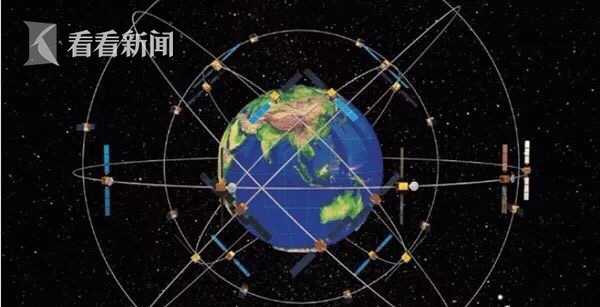
The five functional modules of the operating system are processor management, memory management, device management, file management and operation management. Processor management The most basic function of processor management is to process interrupt events. After configuring the operating system, various events can be processed.
The functions of the computer operating system include: processor management, memory management, device management, file management, job management and other functional modules. Processor management. The most basic function of processor management is to handle interrupt events. The processor can only detect interrupt events and generate interrupts and cannot process them.
Storage management is divided into several functions: storage allocation, storage sharing, storage protection, and storage expansion.Equipment management has the following functions: equipment allocation, equipment transmission control, and equipment independence. File management: file storage space management, directory management, file operation management, file protection.
The operating system should usually include the following five functional modules: (1) Processor management. When multiple programs are running at the same time, solve the problem of processor (cpu) time allocation. ( 2) Operation management. The program to complete an independent task and its required data constitute a task.
The function of the operating system is mainly reflected in the management of computer resources - microprocessors, memory, external devices, files and tasks. The operating system sets this management function into the corresponding program management module, and each management module is responsible for a certain function.That is, the five functions of the operating system.
The operating system has five functions: processor management: mainly controls and manages the work of the CPU. Storage management: mainly carry out memory allocation and management device management: mainly manage basic input and output device file management: responsible for the organization, storage, operation and protection of computer files, etc.

There are the following types of management systems: the management system of the finished product set. This kind of system is a stereotyped management system, which makes a small number of functional adjustments to the software through the parameter settings of the software.
Transaction Processing System (TPS): Operators and supervisors are used to input transactions, events, sort, list, merge updates, output detailed reports, lists and summaries, etc. Management Information System (MIS): Middle managers are used to input general transaction data and simple models to process routine reports.
Adgecal management system Academic management system is one of the most core management systems of the school, which is responsible for arranging and managing the school's teaching activities. It includes curriculum setting, teaching plan, teacher arrangement, examination management and other contents.
VMware vSphere: It is a virtualization management platform that can be used to manage virtual machines, storage and networks, etc. Nagios: It is an open source network monitoring system that can be used to monitor network devices, servers and applications, etc.
Financial subsystem: providing the function of financial management information; Decision support subsystem: make the logistics information system reach a higher level.
ERP management system brand Youyou, Jindie International Software, Wave Software, Dingjie Software, Zhenghang Software. Use friends.
1. System management refers to the information technology system that manages enterprises, and file management is one of the five major functions of the operating system.First, network management refers to the centralized management of resources on the network by network administrators through network management programs.
2. System Management regards organizational components as interrelated and interdependent systems, so it advocates applying the system concept to the management concept.
3. System management refers to the process of maintaining, managing and monitoring computer systems. As an important part of enterprise informatization construction, the importance of computer system management cannot be ignored.
Casino redeem-APP, download it now, new users will receive a novice gift pack.
The five functional modules of the operating system are processor management, memory management, device management, file management and operation management. Processor management The most basic function of processor management is to process interrupt events. After configuring the operating system, various events can be processed.
The functions of the computer operating system include: processor management, memory management, device management, file management, job management and other functional modules. Processor management. The most basic function of processor management is to handle interrupt events. The processor can only detect interrupt events and generate interrupts and cannot process them.
Storage management is divided into several functions: storage allocation, storage sharing, storage protection, and storage expansion.Equipment management has the following functions: equipment allocation, equipment transmission control, and equipment independence. File management: file storage space management, directory management, file operation management, file protection.
The operating system should usually include the following five functional modules: (1) Processor management. When multiple programs are running at the same time, solve the problem of processor (cpu) time allocation. ( 2) Operation management. The program to complete an independent task and its required data constitute a task.
The function of the operating system is mainly reflected in the management of computer resources - microprocessors, memory, external devices, files and tasks. The operating system sets this management function into the corresponding program management module, and each management module is responsible for a certain function.That is, the five functions of the operating system.
The operating system has five functions: processor management: mainly controls and manages the work of the CPU. Storage management: mainly carry out memory allocation and management device management: mainly manage basic input and output device file management: responsible for the organization, storage, operation and protection of computer files, etc.

There are the following types of management systems: the management system of the finished product set. This kind of system is a stereotyped management system, which makes a small number of functional adjustments to the software through the parameter settings of the software.
Transaction Processing System (TPS): Operators and supervisors are used to input transactions, events, sort, list, merge updates, output detailed reports, lists and summaries, etc. Management Information System (MIS): Middle managers are used to input general transaction data and simple models to process routine reports.
Adgecal management system Academic management system is one of the most core management systems of the school, which is responsible for arranging and managing the school's teaching activities. It includes curriculum setting, teaching plan, teacher arrangement, examination management and other contents.
VMware vSphere: It is a virtualization management platform that can be used to manage virtual machines, storage and networks, etc. Nagios: It is an open source network monitoring system that can be used to monitor network devices, servers and applications, etc.
Financial subsystem: providing the function of financial management information; Decision support subsystem: make the logistics information system reach a higher level.
ERP management system brand Youyou, Jindie International Software, Wave Software, Dingjie Software, Zhenghang Software. Use friends.
1. System management refers to the information technology system that manages enterprises, and file management is one of the five major functions of the operating system.First, network management refers to the centralized management of resources on the network by network administrators through network management programs.
2. System Management regards organizational components as interrelated and interdependent systems, so it advocates applying the system concept to the management concept.
3. System management refers to the process of maintaining, managing and monitoring computer systems. As an important part of enterprise informatization construction, the importance of computer system management cannot be ignored.
bingo plus update today Philippines
author: 2025-01-09 18:51Hearthstone arena deck Builder
author: 2025-01-09 17:31 App to watch Champions League live free
App to watch Champions League live free
755.19MB
Check UEFA live free
UEFA live free
618.27MB
Check European Cup live
European Cup live
581.42MB
Check UEFA EURO
UEFA EURO
454.36MB
Check Hearthstone arena
Hearthstone arena
835.29MB
Check DigiPlus stock
DigiPlus stock
845.33MB
Check UEFA Champions League standings
UEFA Champions League standings
936.11MB
Check Hearthstone Arena Tier List
Hearthstone Arena Tier List
645.72MB
Check UEFA European championship
UEFA European championship
461.12MB
Check DigiPlus fair value
DigiPlus fair value
796.85MB
Check Casino Plus GCash login
Casino Plus GCash login
968.44MB
Check DigiPlus
DigiPlus
741.69MB
Check Hearthstone Wild Decks
Hearthstone Wild Decks
772.38MB
Check UEFA live free
UEFA live free
843.98MB
Check Arena plus APK
Arena plus APK
933.93MB
Check App to watch Champions League live free
App to watch Champions League live free
594.69MB
Check UEFA live free
UEFA live free
614.49MB
Check Casino Plus free 100
Casino Plus free 100
684.49MB
Check Hearthstone deck
Hearthstone deck
928.59MB
Check App to watch Champions League live free
App to watch Champions League live free
936.45MB
Check Hearthstone arena deck Builder
Hearthstone arena deck Builder
876.82MB
Check Hearthstone Arena class tier list 2024
Hearthstone Arena class tier list 2024
183.82MB
Check Arena Plus login
Arena Plus login
185.64MB
Check Casino free 100 no deposit
Casino free 100 no deposit
442.29MB
Check Hearthstone arena deck Builder
Hearthstone arena deck Builder
818.22MB
Check TNT Sports
TNT Sports
476.18MB
Check UEFA EURO
UEFA EURO
139.65MB
Check UEFA Champions League standings
UEFA Champions League standings
234.65MB
Check UEFA Champions League
UEFA Champions League
775.89MB
Check Hearthstone arena deck Builder
Hearthstone arena deck Builder
217.77MB
Check DigiPlus Philippine
DigiPlus Philippine
692.33MB
Check UEFA Champions League standings
UEFA Champions League standings
931.83MB
Check Hearthstone Arena Tier List
Hearthstone Arena Tier List
827.63MB
Check Hearthstone Arena win rate
Hearthstone Arena win rate
215.35MB
Check UEFA Champions League live streaming app
UEFA Champions League live streaming app
934.26MB
Check casino plus free 100
casino plus free 100
924.29MB
Check
Scan to install
Casino redeem to discover more
Netizen comments More
1961 Hearthstone Arena Tier List
2025-01-09 17:39 recommend
2514 Casino Plus free 100
2025-01-09 17:12 recommend
1413 casino plus free 100
2025-01-09 16:58 recommend
899 DigiPlus
2025-01-09 16:47 recommend
1262 DigiPlus
2025-01-09 16:41 recommend